Thousands will compete, many are objectively baseless, but only five can be crowned the worst of the worst copyright lawsuits of 2023.
We’re nearing the end of December, which means it’s time for Copyright Lately’s annual worst-of list. This year, I’m counting down the five most frivolous, ill-conceived, and all-around cringeworthy copyright lawsuits of 2023. The rankings come from my decidedly unscientific survey of copyright cases from coast to coast, and we don’t stop until we get to the top. Now, on with the countdown:
5. Cramer v. Netflix, Inc.
Tattoo Fail. With her tattoo parlor shuttered by the COVID-19 pandemic, Molly Cramer had two brilliant money-making ideas. The first was to ink an image of Tiger King star Joe Exotic (along with a can of Lysol and a “Quarantine 2020” toilet paper banner) onto her husband’s thigh as part of a gift certificate promotion for the business.

The second was to demand $10 million from Netflix after the streamer showed a photo of said tattoo for 2.2 seconds during the first episode of Tiger King‘s second season. When Netflix refused to pay up, Cramer sued for copyright infringement.
Cramer’s second get-rich-quick scheme didn’t go so well. Even though Cramer v. Netflix was decided after the Supreme Court managed to make fair use even more complicated in Andy Warhol Foundation v. Goldsmith, Western District of Pennsylvania District Judge Stephanie L. Haines still had no trouble dismissing Cramer’s case.

The defendants’ use of the tattoo—”part of a visual and auditory compilation depicting the public’s overwhelming fascination with and reaction to Joe Exotic in the early days of the pandemic”—qualified as criticism, comment, or reporting and was therefore quintessential fair use. To the extent the parties were both using the image for the same purpose, that was because Cramer’s tattoo was “created to capitalize on the portrayal of Joe Exotic created by the Defendants’ series”—not the other way around. In addition, the plaintiff hadn’t alleged that the market for her tattoo was in any way affected by Netflix’s blink-and-you’ll-miss-it use of her work. Cramer didn’t get her ten million, but hey—at least her husband has that tattoo as a souvenir.
4. Norman v. ABC Network
A Case of Mistaken Identity. Coming in at number four is a lawsuit filed by LaSandra Norman, who also goes by the name Beyonce G. Knowles. No, not that Beyoncé, which was precisely the problem. The plaintiff claimed that ABC Network and its local affiliate falsely reported that she was performing as part of the Renaissance Tour at Soldier Field in Chicago. Even worse, the defendants allegedly conspired for an impersonator to unlawfully sing the plaintiff’s copyrighted music on stage.

Unfortunately for Norman . . . err . . . Beyonce, Northern District of Indiana Judge Philip P. Simon ruled that her allegations were “facially implausible and frankly delusional.” Stating a valid claim “requires more than a conclusory allegation that ABC Network made a report that Plaintiff, as opposed to one of the most famous popular music artists of the century, was performing at Soldier Field.”
Judge Simon noted that he would normally grant leave to amend but said, “This matter is a different kettle of fish.” That’s because Norman was a serial plaintiff who “has repeatedly filed cases in federal court predicated on the false notion that she is the singer and actor Beyoncé Giselle Knowles-Carter.” In one of those cases, the Seventh Circuit warned Norman that “further suits like this one may lead to sanctions.” Fortunately for Norman, Judge Simon didn’t come to slay—but he did dismiss her complaint without requiring the defendants to appear and contest the case. As a result, ABC didn’t have to pay any legal bills, bills, bills, and its lawyers maybe got to chill.
3. Jones v. Atlantic Records
Lyrically Challenged. In what may be 2023’s most profound work of judicial scholarship, Southern District of New York Judge Andrew L. Carter wrote in Jones v. Atlantic Records that “The concept of using ‘p**** so wet’ as a rhetorical device in a song is neither original nor unique to plaintiff.” The plaintiff in question was rapper Denise Jones, aka Necey X, who claimed that Cardi B, Megan Thee Stallion and Atlantic Records “copied and pasted the lyrics” from her original song Grab Em by the P**** to use in the hit songs WAP and Thot Shit.

In addition to the fact that the phrases at issue were too unoriginal to be protected by copyright, the court held that the defendants’ songs didn’t feature substantially similar lyrics in any event: “Defendants’ lyric, ‘why you in the club with n***s wild’n,’ poses a question to the rapper (or to the audience), while plaintiff’s lyric refers to the rapper’s effect on a single individual,” the court held. “Thus, the phrase is used in different ways and has different meanings such that an ordinary listener would not identify defendants’ lyric as being appropriated from Plaintiff’s song.”
“The concept of using ‘p**** so wet’ as a rhetorical device in a song is neither original nor unique.”
Jones v. Atlantic Records
Kudos to Judge Carter and his intrepid law clerks for navigating the waters of the idea/expression dichotomy. While distinguishing between unprotected ideas and protectable expression can be slippery business, at least we no longer have to wonder on which side of the line “p**** so wet” falls.
2. La Dart v. Swift
Not-So-Swift Justice. Will folks ever get tired of suing Taylor Swift over ridiculous copyright claims? Maybe someday, but not yet. Teresa La Dart, the author of a 2010 poetry book called Lover, filed a copyright infringement lawsuit over a companion book for Swift’s 2019 album of the same name. La Dart claimed that Swift’s book copied “a number of creative elements” from her work, alleging that both have cover formats in which the author is in a “downward pose” and which feature “pastel color schemes.” They also have similar inner book designs because—wait for it—photographs and writings are “interspersed.” You know, like a book.

When this case was first filed last year, I told Billboard‘s Bill Donahue that Dart “might as well sue anyone who’s ever written a diary or made a scrapbook.” Of course, most scrapbook makers aren’t sitting on a million dollars—the amount La Dart demanded from Swift.

To make matters worse, La Dart didn’t represent herself. An actual real-life lawyer drafted her complaint, and that lawyer continued to pursue the case into 2023 when Swift’s attorneys filed their inevitable motion to dismiss. Only after forcing Swift to incur legal fees (and likely facing an order requiring her to reimburse those fees) did La Dart voluntarily agree to drop her case.
Better late than never? I suppose, but La Dart and her lawyer still take home pastel silver for the second-worst copyright lawsuit of 2023.
1. Polychron v. Bezos
Epic Fail of the Rings. My award for the most frivolous copyright case of 2023 goes to Demetrious Polychron, who also gets an award for the most villainous name since Hannibal Lechter. Polychron, seen here in Transformers: Rise of the GoBots, self-published a book called The Fellowship of the King, which was the first of a planned seven-volume sequel to J.R.R. Tolkien’s classic novel The Lord of the Rings.

If you’re planning to sell an unauthorized sequel to one of the best-selling books of all time, you might consider keeping that information on the down low. But not Polychron. He trumpeted his Fellowship as “the obvious pitch-perfect sequel to The Lord of the Rings” in a letter he sent to Tolkien’s grandson of all people.
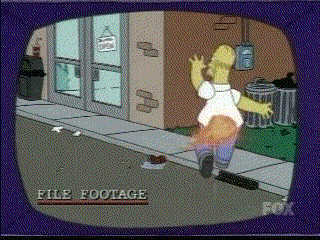
Polychron then proceeded to light himself on fire—metaphorically speaking. The author filed a lawsuit against Jeff Bezos, Amazon Studios and the Tolkien estate, claiming that Amazon’s authorized prequel The Rings of Power was a ripoff of his ripoff of The Lord of the Rings.

Polychron’s case was doomed from the start: Because his book was an unauthorized derivative work based on Tolkien’s trilogy, with the characters “lifted lock, stock and barrel” from the original works, it wasn’t subject to copyright protection in the first place. The court relied on Anderson v. Stallone, which held that the author of an unauthorized treatment for Rocky IV had no standing to sue Sylvester Stallone for infringement.
Meanwhile, the Tolkien Trust proceeded to file its own copyright infringement lawsuit against Polychron, and Central District of California Judge Stephen V. Wilson had no difficulty finding that the unauthorized novel infringed Tolkien’s works.
Polychron’s quixotic odyssey ended with a permanent injunction requiring him to destroy all physical and electronic copies of his infringing work and to reimburse Amazon and the Tolkien parties for the fees they incurred in defending his frivolous lawsuit. Still, Polychron doesn’t walk away totally empty-handed: he’s taking home Copyright Lately‘s gold medal for the Worst Copyright Lawsuit of 2023.
*gold medal not included.
Well, there you have it. The 5 Worst Copyright Lawsuits of 2023, according to me. I’d love to know what you think were the most outrageous copyright lawsuits of the year. Drop me a line in the comments below or @copyrightlately on LinkedIn, X/Twitter, Instagram, Mastodon, Facebook, Bluesky or Threads. And remember to keep your head in the stars and your feet near some clouds in 2024.
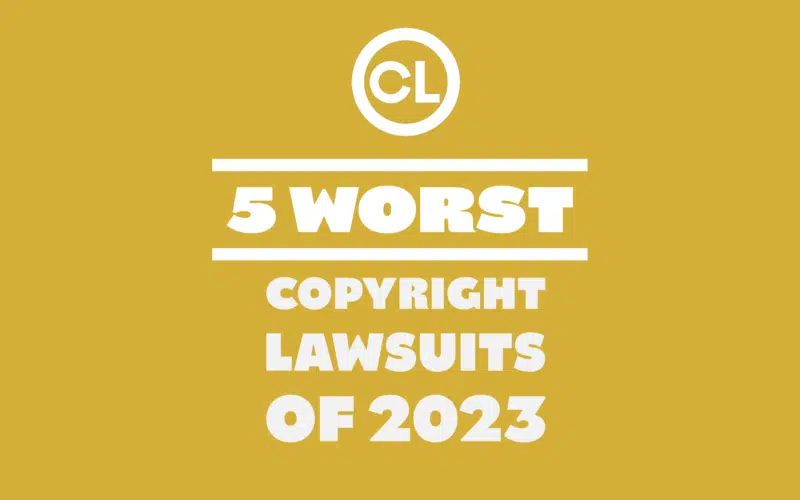


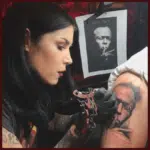
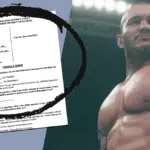

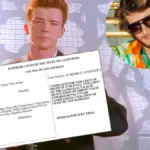
1 comment
Considering that Andersen v. Stability AI Ltd. has resubmitted after dismissal with what looks remarkably like some of the same claims and issues that were previously dismissed I think they look to be trying really hard to get on the list. It feels to me that they still don’t quite get what actually constitutes copyright infringement.
I would love to hear your thoughts on it!